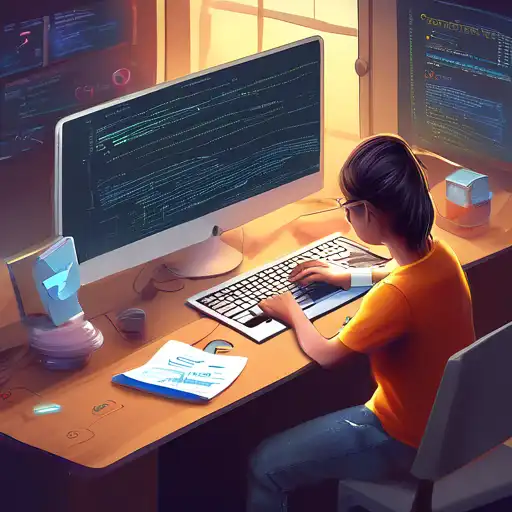Master Coding Quickly: 5 Effortless Steps for Beginners
Learning to code can seem daunting at first, but with the right approach, anyone can master the basics quickly. Whether you're aiming to switch careers or just want to understand the digital world better, these five simple steps will guide you through the process of learning coding fast.
Step 1: Choose the Right Programming Language
Start with a language that matches your goals. For web development, consider HTML and CSS for starters, then move to JavaScript. If you're interested in data science, Python is a great choice. The key is to start simple and build your way up.
Step 2: Utilize Free Online Resources
There's a wealth of free resources available online. Platforms like Codecademy and freeCodeCamp offer interactive lessons that make learning engaging and fun. Don't overlook the power of community forums and YouTube tutorials either.
Step 3: Practice Daily
Consistency is crucial when learning to code. Dedicate at least an hour each day to practice. Start with small projects, like building a personal website or a simple calculator, to apply what you've learned.
Step 4: Join a Coding Community
Learning alongside others can significantly boost your motivation and knowledge. Join online communities such as Stack Overflow or local meetups to share insights, ask questions, and get feedback on your projects.
Step 5: Build Real-World Projects
Nothing solidifies your coding skills like applying them to real-world problems. Start with small projects and gradually increase their complexity. This hands-on experience is invaluable and can also help you build a portfolio to showcase your skills.
Learning to code is a journey that requires patience, practice, and persistence. By following these five steps, you'll not only learn coding fast but also enjoy the process. Remember, every expert was once a beginner. Start small, stay consistent, and don't be afraid to make mistakes—they're part of the learning process.
For more tips on learning new skills, check out our guide on effective learning strategies.
